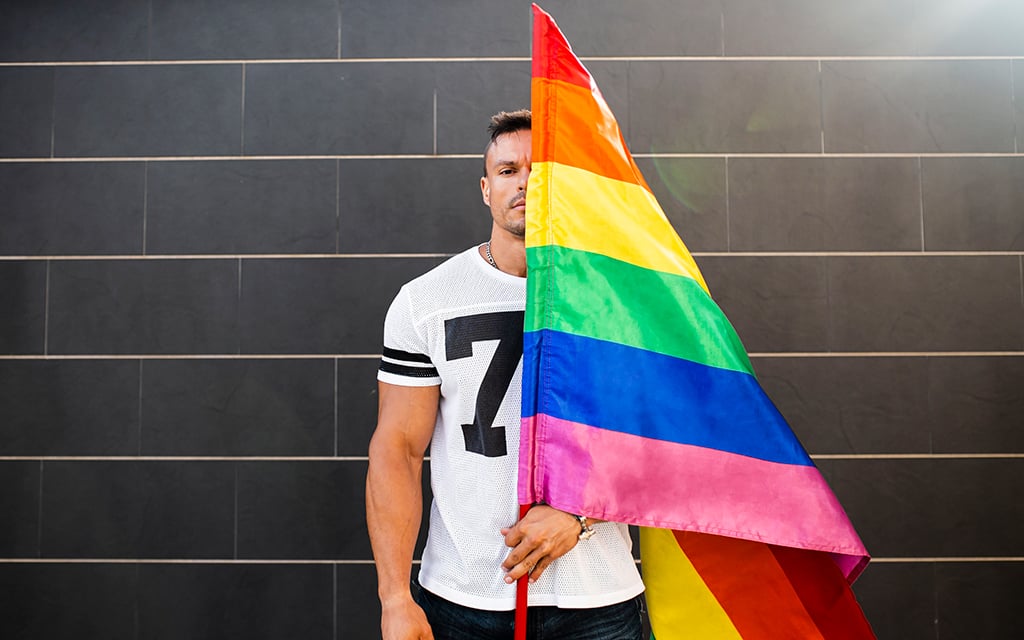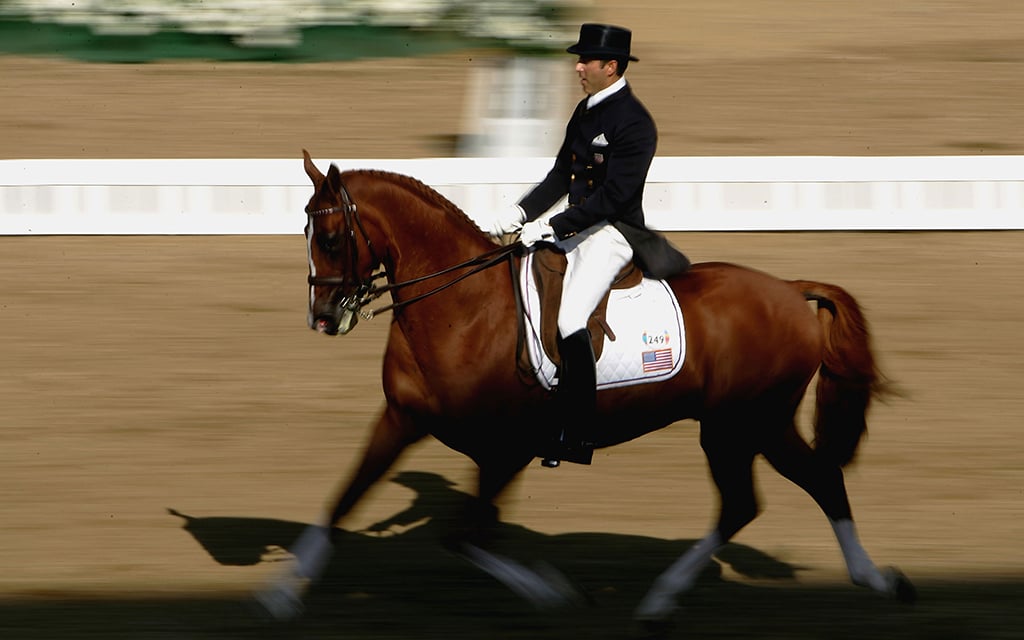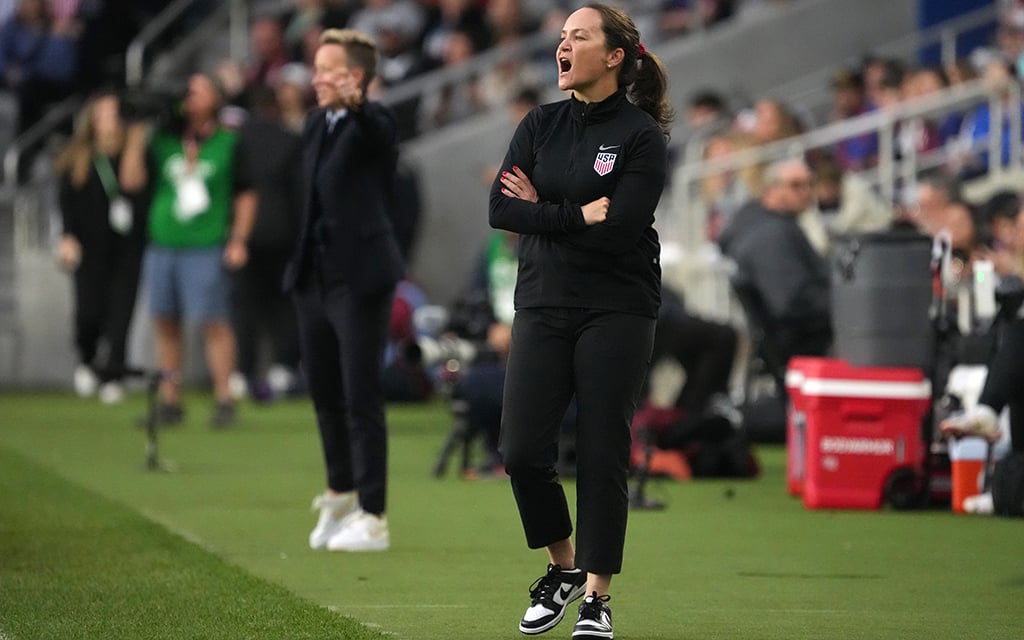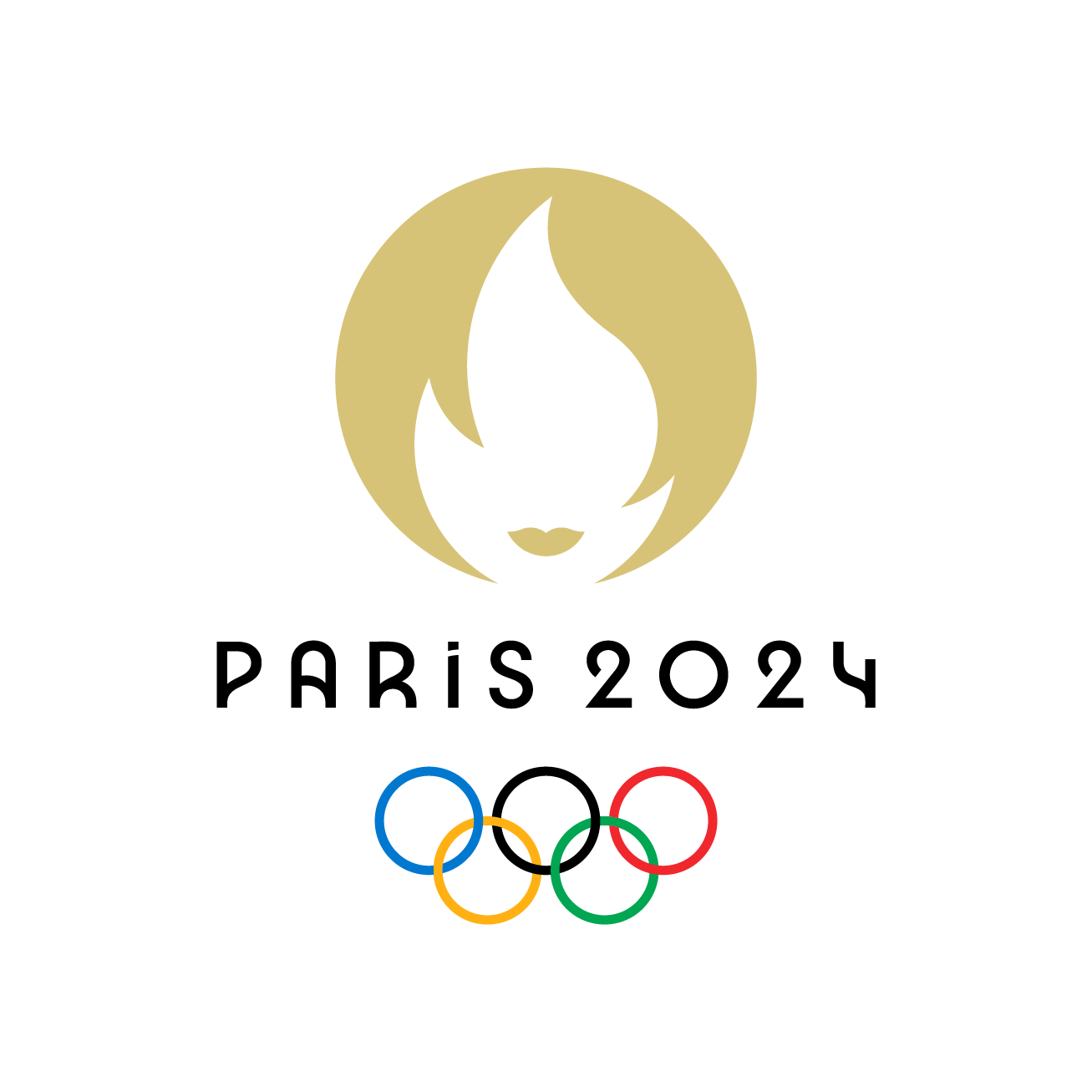
The Paris Olympics are expected to feature a record number of LGBTQIA+ athletes. In 2021, at least 186 had come out who participated in the Tokyo Games. (Photo by Westend61/Getty Images)
PARIS – The LGBTQIA+ community will be a focal point during the Paris Olympics, which officially kick off with Friday’s opening ceremony.
“This will be the gayest Olympics ever,” said Cyd Zeigler, a Los Angeles-based journalist who co-founded Outsports, a popular sports news destination.
His publication, which covers the intersection of sports and LGBTQIA+ issues in amateur and professional sports, reported in 2021 that at least 186 athletes in the Tokyo Olympics were publicly out, by far the most ever recorded.
That count included athletes who were openly gay, lesbian, bisexual, transgender, queer or nonbinary. It was more than triple the number who participated at the 2016 Olympics Games in Rio de Janeiro, Outsports reported.
In these 2024 Olympics, Zeigler expects a record number.
“The number of out athletes that will be in Paris will be inspiring,” he said.
Coming out is a difficult process, Zeigler said, but doing it before taking a stage like the Olympics can special.
“It’s hard for anybody to come out. We still live in a culture where you are told you should be straight,” Zeigler said. “Once you come out, it’s beautiful. And that’s what we hear from athletes over and over again.”
Arizona’s LGBTQIA+ community will also be spotlight at the Games. The Phoenix Mercury’s Diana Taurasi and Brittney Griner are two of the openly gay athletes that will be competing in the Paris Olympics. In 2022, Northern Arizona University track and field star Nico Young, who will compete in the men’s 10,000 meters, came out via Instagram.
Other athletes, like British diver Tom Daley and U.S. hurdler Trey Cunningham, who qualified for the Olympic trails but feel short of the Olympcis, also have come out publicly as gay.
Six-time Olympian Robert Dover knows the value of showing true colors on a massive stage like the Olympics. At the 1988 Olympic Games in Seoul, South Korea, Dover, who participated in equestrian events, broke ground as the first openly gay athlete to compete at a modern Olympic Games.
“I basically said that I was the United States Olympic team’s gay athlete at that point,” Dover said. “And then from that point on, in several Olympics, the press followed me more as, I think, as much because I was a gay athlete as I was getting medals.”
Dover had been out to his family years before that. His family accepted him.
By 1984, he had a boyfriend, yet he never went public with his relationship. That year, he competed in his first Olympic Games in Los Angeles. Still, he wasn’t out.
“It wasn’t the norm for athletes in really any sports to be out back then,” Dover said. “Just like it is now in a lot of team sports, people are afraid of losing their sponsorships, their clientele. There are just too many reasons not to come out.”

Robert Dover of the U.S. competed in the individual dressage grand prix freestyle event during the Athens 2004 Summer Olympics. He is believed to first the Olympian to come out publicly as gay. (Photo by Chris McGrath/Getty Images)
Meanwhile, the AIDS epidemic of the 1980s was becoming a crisis among the gay community.
In early 1986, Dover said he slept with a man in Fort Lauderdale. He had been planning to move to Germany, and on his way out of the country, he read an edition of Hotspots Magazine, which had a section full of obituaries of people who had died from AIDS.
The Fort Lauderdale man was listed in the magazine.
“So I went to Germany, and for two and a half years, from ‘86 until ‘88… I thought I was going to die,” Dover said. “And I was too afraid to get tested.”
The 1988 Seoul Olympics were just on the horizon. Dover moved back to the states to live with his then-boyfriend. His boyfriend one day put a piece of paper on the table showing the negative results of an HIV test he had taken without Dover knowing. Dover took that as a positive sign that he wasn’t HIV positive.
“I broke down crying,” Dover said. “That was… one of the greatest gifts anybody ever gave me.”
The AIDS scare was a turning point in Dover’s life.
“I was determined to do things to help people that were suffering from HIV or AIDS,” Dover said.
That’s when Dover started donating to AIDS foundations. At the time, the equestrian governing body was giving Dover $5,000 to donate to a charitable organization. He chose to donate his money to amfAR, formerly known as the American Foundation for AIDS Research.
Dover wanted to announce his donation while competing at an international competition, but the governing body said he wasn’t permitted. The donation was too much of a “downer,” he was told.
So he told the governing body he wouldn’t perform.
“I went out in a stable area and told all of the riders what was happening,” Dover said. “And they all said, ‘Well, if they don’t announce (the donation) and he doesn’t go on, we’re not going on either.”
The governing body backed down. They publicly announced Dover’s donation to the AIDS foundation.
At a media symposium later in the year, Dover told press members he was gay, becoming the first openly gay athlete to compete at a modern Olympic Games.
That same year, Dover helped found the Equestrian AIDS Foundation, now the Equestrian Aid Foundation.
“That’s given millions of dollars to help people living with life threatening illnesses and victims of catastrophic injuries,” Dover said.
While he did face homophobia at times, Dover never faced it from the equestrian community or the Olympic athlete community, he said. That made the sport even more comfortable for him.
“Most people are focused on trying to win a medal,” Dover said.
Because Dover’s lived through publicly coming out on a large stage, he understands how it could be scary for athletes to do it. But he hopes when others come out like he did, it encourages those who may be scared.
“I think that every time a gay athlete comes out, whether it’s an Olympian or somebody in professional sports … other kids or adults have a little more courage to be able to do what they really wish they could, because they don’t think they’re alone,” Dover said.
He believes there will be more athletes come out than expected at these Olympics.
“If you consider, and I always have thought it’s probably much larger than that, but if 10% of the population is gay or LGBTQ, then at least that … same fraction is true in the Olympics,” Dover said.
With the expected attendance of LGBTQIA+ athletes, fans and media members, Olympics officials have organized a Pride House, which will be “a safe, identifiable, and welcoming space for everyone,” according to the Olympics website.
The Pride House will be the third edition of such a space, which will be located in Paris and be open during the duration of the Games. The Pride House was first brought to life in 2010, during the Vancouver Winter Olympics.
Both Dover and Zeigler are part of the board of commissioners that are organizing a Pride House in Los Angeles for the upcoming 2028 Olympics.
“Pride house that they are planning (in Paris) will be the best pride house ever,” Zeigler said. “And the one that I’m a part of for Pride House L.A. – West Hollywood 2028 – will be amongst the greatest LGBT events that there’s ever been. And I cannot wait to go. And what we have planned four years from now will be an historic celebration of our community.”
West Hollywood, in fact, is sending a number of officials, including its mayor, Erick Johnson, to Paris to visit the Pride House and gain inspiration for a Los Angeles edition.
France is known as a welcoming country for members of the LGBTQIA+ community.
The country was the thirteenth country in the world to legalize same-sex marriage in 2013. France legalized gay marriage even before many countries with democratic governments did. France legalized same-sex marriage before the United Kingdom, Australia, Switzerland and the United States did.
France’s most recent prime minister, Gabriel Attal, is a well-known member of the government who is gay. So is Bertrand Delanoë, the mayor of Paris from 2001 to 2014.
These 2024 Olympic Games and the 2028 Olympic Games will be a celebration for the LGBTQIA+ community like no other, Zeigler said.
“The gays love the Olympics,” Zeigler mused. “It is an incredible celebration of multiculturalism where people from virtually every country come together, and for weeks, just celebrate how we are connected and not how we are divided.
“And the gays love it.”



